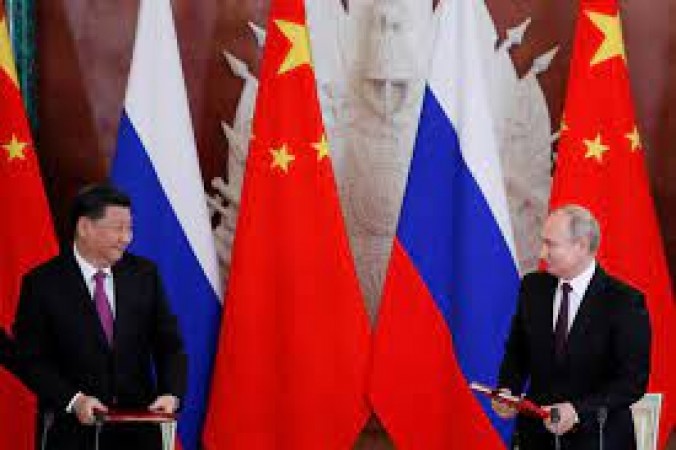
The Sino-Russian partnership and its relationship has become a challenge for the west and has declared a “new era” in the global order. The world’s two most powerful countries have unveiled a long-term agreement that challenges the US and the west.
Asserting themselves against the US, Moscow, and Beijing were willing to acquiesce in the unipolar moment in the 1990s, and began to assert themselves against the US-led international order in the 21st century. Europe focused on strengthening its economic and political integration and sought greater strategic autonomy from the United States.
Moscow and Beijing, including the Treaty of Friendship of 2001, have traditionally been laden with lofty, if vague, rhetoric that faded into forgotten history. Although it falls short of a formal alliance, like NATO, the agreement reflects a more elaborate show of solidarity than at any time in the past.
Declining of the USA, as they drew steadily closer over the last decade, Russia’s Vladimir Putin and China’s Xi Jinping bet that the apparent American decline was real and irreversible. That emboldened Putin's Ukraine’s sovereignty. China’s shift has been emerging as the Ukraine crisis began spilling over onto already tense US-China relations.
China has backed Russia against Europe, as the seeming political disarray in the West also convinced Xi to back Putin’s attempt to reorder European regional security order. The Partnership without limits and no forbidden areas of cooperation was unveiled less than three weeks before Putin invaded Ukraine on February 24, 2022. As two nuclear-armed countries that span Europe and Asia, the more muscular alignment between Russia and China could be a game changer militarily and diplomatically.
China is Russia’s largest country trading partner, while Russia is China’s principal source of energy imports. Their defense, security, cyber, and technological cooperation have expanded impressively in recent years. And they hold similar views on many international issues.
Russian officials have boasted that the growing defense partnership was designed to warn the United States and NATO not to pressure Moscow. The Moscow-Beijing axis constitutes a full-blown military alliance while others have argued that the relationship is little more than an “axis of convenience.”
Russia’s war against Ukraine is set to fundamentally transform the international order. We cannot understand the new geopolitical dynamics at play in this new order without speaking directly to those who will be its main architects. Sino-Russian military cooperation has been confined to regular military exercises and patrols directed against US alliances in the Indo-Pacific.
Chinese and Russian aggression has impacted the mid-power countries and acted as an eye-opener to Germany and Japan. Russian expansionism in Europe and Chinese aggressiveness in Asia have compelled Germany and Japan to boost their defense spending. Poland, Australia, and South Korea have embarked on ambitious regional security policies.
Chinese officials and state media blame the United States and NATO for “fuelling the fire” of war by arming Ukraine. Sino-Russian trade in the first seven months of the year has increased by 29 percent year on year.
Role of nuclear proliferation among various G7 members
Is China's era of rapid growth truly over?
Tymoshenko submits his resignation as the deputy head of the Ukrainian presidential office